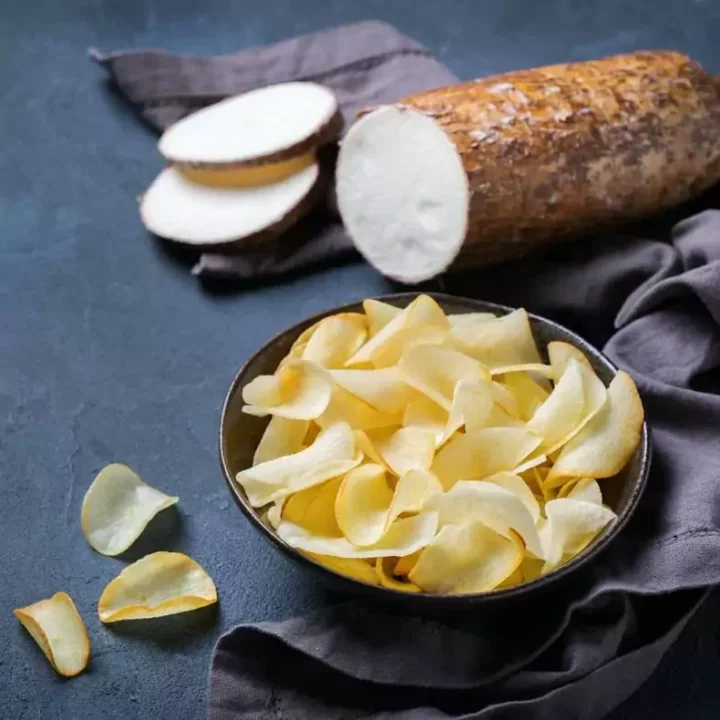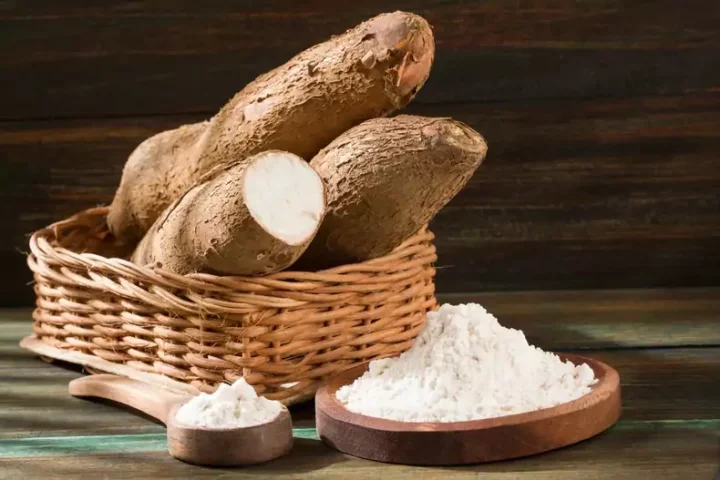![Bakare made a suggestion to President Tinubu on how cassava can improve the value of the Naira [MIT News] Bakare made a suggestion to President Tinubu on how cassava can improve the value of the Naira [MIT News]](https://static.netnaija.com/i/bvWaqp9m7rk.webp)
In a video, now gone viral, a young Nigerian journalist, Ayodeji Bakare is seen trying to grab President Bola Tinubu's attention as he repeatedly shouts "Mr. president, commodification of the naira for money policy, use cassava."
This video has attracted the expected jestings from the Nigerian audience, with some wondering what this seemingly cryptic message could really mean.
Well, Pulse is here to help you make sense of this...
Let's break down this somewhat complex and potentially ambiguous suggestion.
Cassava: Cassava is a starchy root crop that is a staple food in many parts of Nigeria and other African countries. It is also used in various industries to produce products like cassava flour, starch, and ethanol.

2. Commodification: Commodification refers to the process of turning something, often a resource or product, into a commodity. In the context of money and currency, commodification can imply making a currency more valuable or stable.
3. Naira: The Naira is the official currency of Nigeria.
4. Money policy: Money policy typically refers to the various measures and strategies employed by a country's central bank or government to regulate and control the money supply, inflation, interest rates, and the overall economic stability of a nation.
With these definitions in mind, the statement suggests that the young man is advising the President of Nigeria to consider using cassava as a means to increase the value or stability of the Naira through monetary policy.
Here are a few possible interpretations of what this could mean:
Cassava as a commodity: This could mean using cassava-related products as a form of commodity trading or export to generate revenue and strengthen the country's foreign exchange reserves. The idea might be to bolster the value of the Naira by promoting the export of cassava-based products.
Cassava-based industries: It could also imply promoting industries related to cassava processing, such as producing cassava flour, and starch, as an economic strategy. By developing these industries, Nigeria might boost employment, increase its GDP, and ultimately enhance the value of its currency.
Cassava as a reserve asset: In an unconventional approach, cassava might be considered as a form of asset backing for the Naira, similar to how some currencies are backed by gold or other commodities. This would involve stockpiling or securing cassava reserves to support the Naira's value.

Possible impacts of these on the Nigerian economy
Diversification of exports: Promoting cassava-based products as a commodity allows Nigeria to diversify its export portfolio, reducing dependence on volatile oil markets.
Job creation: Development of cassava-related industries can create jobs, particularly in rural areas, addressing unemployment and improving livelihoods.
Value addition: Processing cassava into higher-value products adds value to the crop, increasing revenue and profit margins for businesses.
Foreign exchange earnings: Successful cassava exports generate foreign exchange, which can finance imports and support economic development.
Food security: Promoting cassava cultivation enhances food security by stabilising the supply of a staple food and reducing reliance on imports.

Punching holes in this suggestion
Implementing such a policy would require careful economic analysis and planning. The effectiveness of using cassava in this manner to influence the Naira's value would depend on various economic factors, including global market demand for cassava products and the country's ability to develop and manage relevant industries.
Source: pulse.ng







.jpg)








Comments